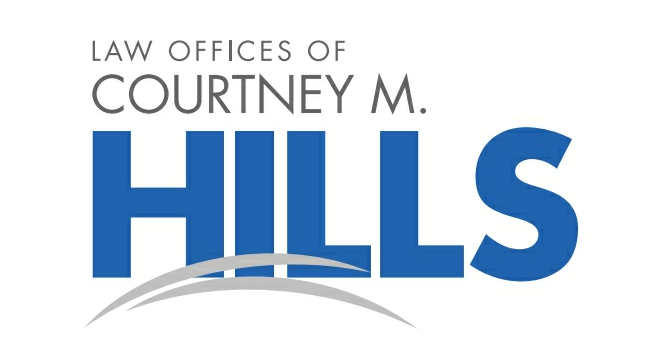Moving in Before Closing
Possession of a home usually transfers at Closing, but in some cases, a Buyer will ask the Seller to grant possession prior to Closing. Such an arrangement is convenient for a Buyer and can make it easier for the current owner to sell the home, but it also raises a host of potential problems.
Probably the biggest risk in allowing early possession lies in the simple fact that home sales can and do fall through – often at the last minute. The Buyer’s financing may not work out, a major problem could arise in a home inspection, or there may be liens against the premises that make a sale impossible. Whatever the case may be, if the sale falls through, the “Buyer” now occupies the home, and getting them out might be tricky.
Another thing to consider is what type of insurance coverage do the parties need during the pre-possession period in the event of theft, fire, or other calamities. A homeowner’s insurance policy on a new home does not take effect until Closing, when the premises is legally in the possession of the Buyer. Any damage that happens to the structure is covered by the Seller’s home insurance, but that does not include damage to or loss of a Buyer’s personal property. However, such damage or loss could be covered if the Buyer has a homeowner’s insurance policy on their current home that has “off premises” property coverage. But what if the Seller wants the Buyer to provide a policy covering the premises as well? Is that even doable? A Buyer should speak with an insurance agent prior to agreeing to provide such coverage.
Prior to occupation, the Buyer should also conduct a pre-possession inspection. This protects the Seller from the Buyer demanding a discount at Closing for damage to the home that they actually caused. In addition, a Buyer should be prohibited from making any improvements to the premises during the pre-possession period.
Consideration should also be given to whether the Buyer should pay rent, whether the rental rate will escalate if the Closing is delayed, whether a security deposit should be required, and whether utility accounts should be switched over into Buyer’s name during the pre-possession period.
If you do agree to early Buyer possession, it should be handled with a written agreement that describes the duties and responsibilities of both parties. The following pre-possession checklist will help get you started:
Pre-possession Checklist
- Purpose: State whether the Buyer and Seller’s relationship will create a landlord-tenant relationship and thereby be governed by the New York State Landlord/Tenant Law.
- Possession Date: Provide the date Buyer’s possession of the premises will begin and when the Buyer has to vacate the premises if Closing does not occur.
- Occupancy: State the reason for the occupancy (e.g., Buyer will occupy the premises or Buyer is just moving personal property into the premises) and who/how many occupants are permitted, including pets, if any.
- Compensation: Determine the amount Buyer will compensate Seller to pre-possess the premises (e.g., daily rate, flat rate, etc.), whether Buyer will directly pay Seller the compensation, and whether Buyer will owe additional funds if the Closing is extended.
- Security Deposit: Consider whether Seller will charge an additional security deposit and how much, whether Seller will hold the security deposit, and how the security deposit will be used and/or returned to Buyer.
- Use of Premises: Include how the premises are to be utilized (e.g., personal residence) and that Buyer will comply with any and all applicable laws, ordinances, regulations, etc. Additionally, address who is responsible if any fines or assessments are incurred during the pre-possession period.
- Utilities/Services: Determine who will pay the utility bills and other services for the premises during the pre-possession period.
- Condition of the Premises: The parties should agree on the condition of the premises prior to Buyer’s pre-possession.
- Insurance: Address whether renter’s insurance and/or additional insurance coverage is needed.
- Risk of Loss: Determine who is responsible in the case of damage to the premises during the pre-possession period.
- Contingencies: Consider whether any remaining contingencies that are not met will continue to be effective or whether the contingencies will be deemed waived once Buyer takes occupancy of the premises.
- Maintenance: Determine who is responsible for any repairs or maintenance of the premises during the pre-possession period.
- Improvements: State whether alterations, repairs, or improvements are permitted during the pre-possession period and what happens if any alterations, repairs, or improvements were made and then Closing does not occur.
- Assignment: Consider whether the Buyer is permitted to assign his/her right to the premises.
- Entry to Premises: The parties should determine what type and how much notice Seller should give Buyer to enter the premises for completing repairs or inspecting the premises.
- Indemnification: The agreement should include an indemnification provision whereby the parties agree to defend, hold harmless and indemnify each other from any and all liability and responsibility related to the pre-possession.
- Other terms and conditions: Include any other items of importance (e.g., no smoking on the premises).
While it is virtually impossible to anticipate problems that may arise during a pre-possession period, using an experienced real estate attorney to draft the pre-possession agreement can help alleviate some of the issues you may encounter.

